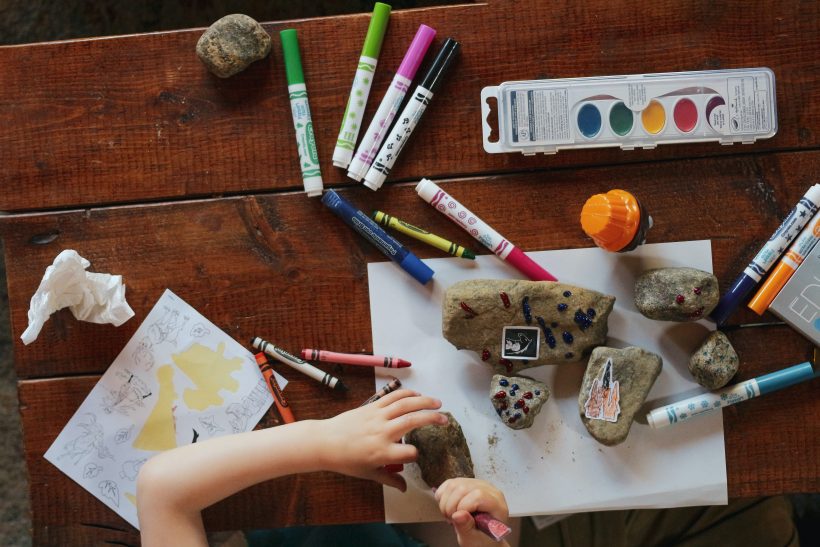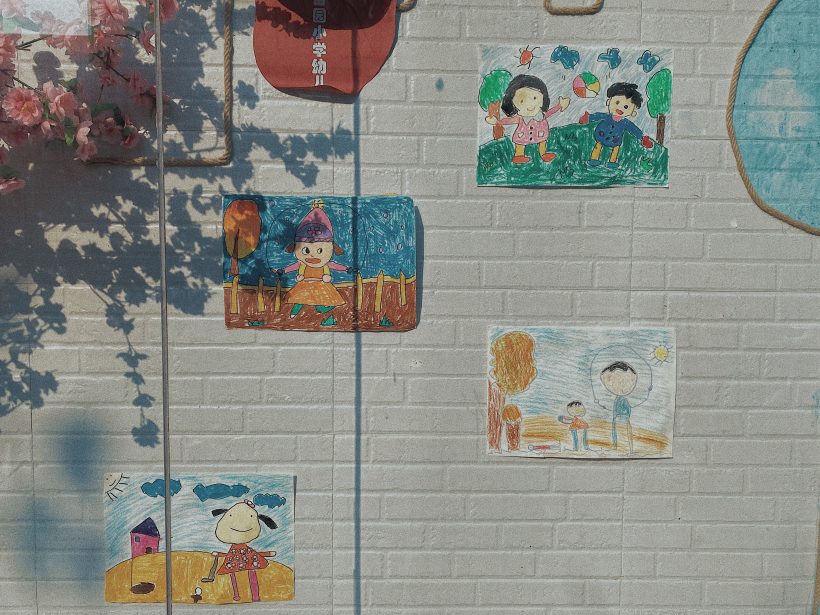Ethnographic fieldwork resembles a dance on the wire between distance and closeness, seesawing between participant immersion and analytical retreat that turns the anthropologist into a tool of data generation. The reflexive – and more recently the affective – turn have acknowledged that data is not out there to be found or dug out by the anthropologist but is produced in encounters and interactions between human beings. It is therefore important to reflect on the ethnographer’s social identity and the roles that she brings along when entering the field and that she establishes in everyday interactions with informants. Feminism has taught us that ethnographic knowledge is always situated (Haraway 1988) and therefore it has become good practice to disclose race, class, gender. How are differences between us and our research partners highlighted or downplayed in the designing of research projects, the construction of the field and the discussion of results? Reflections of that kind belong to the standard building blocks of good ethnographies.
What has escaped the scholarly realm of reflection for a long time is the fieldworker’s family status and the kin ties he or she carries along to the field when doing research in the company of family members. The mythicized imaginary of the lone, white, male Indiana-Jones type of fieldworker obviously stands in the way of a profound discussion of family entanglements and how these shape the research process. This stands in stark contrast to the fact that ever since Victor and Edith Turner embarked with their three little children to do fieldwork among the Ndembu, many, if not most anthropologists have found creative solutions to reconcile family life and professional life by doing long-term fieldwork as parents in the company of their spouses and/or children. Even though she never took her daughter to accompany her on fieldwork, Margaret Mead once even declared the three-generation family ideal for the ethnographic enterprise (Mead 1970: 321). Despite the factual presence of children in the field and the acknowledgment that they might actually facilitate and smoothen the process of immersion and trust building, we do not get to know much about their presence in the field, or only catch a glimpse of them in the acknowledgements section or footnotes.
The mythicized imaginary of the lone, white, male Indiana-Jones type of fieldworker obviously stands in the way of a profound discussion of family entanglements and how these shape the research process.
Being a Parent in the Field sets out to fill this gap by exploring the practical, methodological, epistemological and ethical implications of doing ethnographic fieldwork in the company of family members. It stands in the tradition of a body of literature that, beginning with the feminist critique of representation in anthropology, has investigated fieldwork as a family enterprise. Joan Cassell’s Children in the Field (1987), the first edited volume to address this silence, was soon to be followed by a number of edited volumes and papers addressing the implications and challenges of accompanied fieldwork and exploring ways of representing the findings of research as a family enterprise (see e.g. Strecker, Strecker und Lydall 1995; Gottlieb, Graham and Gottlieb-Graham 1995). Most of these works – and the present volume is not an exception – have grown out of the concession that whereas taking one’s children to the field does impact fieldwork, this impact is rarely acknowledged in the monographs that come out of such fieldworks. For example, Nancy Scheper-Hughes had prepared her contribution to Cassell’s edited volume in advance of her Brazilian fieldwork with her three children.
While in Brazil, she asked them to keep their own field diaries (Scheper-Hughes 1987: 221) and turned her eldest daughter into a research assistant (ibid. 236). Yet, in the monograph that was subsequently published based on this fieldwork, Death without Weeping (1993) – a first person account ethnography on infant mortality and motherly love – the presence and importance of her children during research is only mentioned in the epilogue/acknowledgments. Reflections on fieldwork with children apparently take place only in a highly specialized niche of anthropological literature that is often more anecdotal than theoretical.
Whereas many earlier accounts of children in the field are more or less anecdotal, the present volume does have a theoretical approach and concern.
What then is it that Braukmanns, Haugs, Metzmachers and Stolz’s edited volume adds to the discussion? The book is the outcome of a workshop held at the University of Cologne in 2018 and derives much of its attractivity from the coherence of the individual papers that seem to have gained much from comparative discussion. Compared to many other edited volumes, the contributors to the present volume do speak to each other and address cross-cutting issues in a comparative perspective. Whereas many earlier accounts of children in the field are more or less anecdotal, the present volume does have a theoretical approach and concern. The careful selection and ordering of the individual papers in the book according to three related topics – positionality, similarity and difference; producing ethnographic knowledge; constructing the field – is convincing, but could have been introduced better in the introduction, which instead discusses cross-cutting themes under a different angle distinguishing practical, epistemological and ethical issues. This is all the more surprising, as most papers at least implicitly suggest that epistemological practical and ethical issues are not neatly divided, but rather entangled or even account for one another. Pragmatic or practical decisions concerning logistics and finance as well as the need to reconcile family matters with research interests feed into epistemological issues such as how and by whom the field is constructed and who participates in the knowledge production process and in which ways. In turn, research interests impact practical issues. When relatives are involved, the need to immerse oneself in the field raises ethical challenges: Where does the field end? How is the transparency of the data collection process to be ensured when the researcher is widely associated with being a mother first before being a researcher (see e.g. Häberlein)? Which kin ties matter in the context of ethnographic research and how do “fictive” and locally acquired kin roles (e.g. as adoptive daughter or godparent) fit into existing kin networks?
When relatives are involved, the need to immerse oneself in the field raises ethical challenges: Where does the field end? Which kin ties matter in the context of ethnographic research and how do “fictive” and locally acquired kin roles (e.g. as adoptive daughter or godparent) fit into existing kin networks?
Similarly to the contributions to Cassell (1987) Being a Parent in the Field brings together male and female voices from a variety of academic positions (from the student to the professor cultivating long-term research relationships) and a broad range of research settings and topics. This diversity enables the authors to ask: under what circumstances do children make a difference? (see e.g. the contributions of Pauli and Girke). The focus of the present volume lies – as a matter of fact – on affiliative links that do make a difference. It would be worthwhile to explore in more detail under what conditions doing fieldwork with family members does not impact the research process as much (such as hinted at by Felix Girke’s contribution) and why that is so. Julia Pauli explains the fact that her “not-yet-being-a-mother” mattered greatly in terms of access and social closeness in Mexico, whereas the fact that she had children seemed to make no difference for her research partners in Namibia with divergent levels of family normativity. While in the Mexico case there was a strong moral norm concerning how proper families should look like, in the Namibian case there was much more leeway for alternative models. Similarly, in my West African fieldsite, where temporal child fostering and transnational migration are common (see also Alber, Martin and Notermans 2013) most people did not find unusual and thus not worthy of any discussion the fact that I had left my children behind for a professionally motivated research stay, whereas they interpreted my coming with children as a holiday trip. In this sense another topic that could have been discussed more is the impact of absent children or spouses (dealt with by Pfeiffer) and their (dis)continued absent presence in the field.
It would be worthwhile to explore in more detail under what conditions doing fieldwork with family members does not impact the research process as much.
In the introductory remarks, the book’s editors argue that bringing one’s children to the field allows one to explore the actual boundary-making processes between public and private realms, field and not-field. Andrea Hollington’s contribution deals with the methodological practice of boundary-making, of editing and clearing of undesired side noises or information out of the ethnographic narrative: what is “important” and what is left out as “irrelevant”? What can we learn by paying attention to the side-noises of our children and how do we succeed in producing a polyphonic account?
These are questions, even though not “new”, of burning actuality, as the blurring of work and private spheres during the pandemic has shown. Parenting in the field disrupts the lines we have so carefully drawn between the “private” and the “public”, the “personal” and the “academic”. According to Judith Okely “to describe the dailiness and minutiae of personal encounters in the field is to question the ‘fine distinctions’ between public and private” (1992: 11). This stands in stark contrast to Erving Goffman, whose “on fieldwork” we still use in teaching anthropological methods classes, and who commends: „cut yourself to the bone“ declaring “one of the problems of going with a spouse, […] (especially if you go in with a kid), [is that] it gives you a way out” (1980: 127).
What can we learn by paying attention to the side-noises of our children and how do we succeed in producing a polyphonic account?
And yes, the limited possibilities of financing fieldwork with children and the prejudice that “doing research with children is less efficient” continue to haunt young anthropologists. Discussions on doing fieldwork with kids way too often only take place amongst young researchers during coffee breaks instead of in panels reflecting on the epistemic possibilities opened up by children’s presence in fieldwork. In other words, even though feminist anthropology has highlighted back in the 1980s the male-bias in sciences, the dichotomy between the reflexive/personal and the academic/political is still potent and continues to influence the design and the representation of ethnographic research today. It seems like we still need to abandon the idea that children “pollute” fieldwork and remind ourselves that the idea of children belonging to the private sphere comes from a Eurocentric and therefore un-anthropological perspective.
It seems like we still need to abandon the idea that children “pollute” fieldwork and remind ourselves that the idea of children belonging to the private sphere comes from a Eurocentric and therefore un-anthropological perspective.
Instead, as Erdmute Alber concludes in her afterword to the book, “taking one’s children and other kin into the field is first and foremost nothing other than putting the ethnographic method of observation and participation into practice” (282). Being a Parent in the Field offers an important reminder and therefore, is a welcomed contribution to the methodological and epistemological discussions around the making of ethnography, one that should be read in ethnographic methods courses.
Braukmann, F., Haug, M., Metzmacher, K., & Stolz, R. (2020). Being a Parent in the Field. Implications and Challenges of Accompanied Fieldwork. Bielefeld: Transcript.
References
Alber, Erdmute, Jeanett Martin und Catrien Notermans (2013): Child Fostering in West Africa – New Perspectives on Theories and Practices, Leiden: Brill.
Butler Barbara and Diane Turner (eds) (1987): Children and Anthropological Research. New York and London: Plenum Press
Cassell, Joan (ed) (1987): Children In The Field: Anthropological Experiences. Temple University Press.
Cornet, Candice and Tami Blumfield (eds) (2016): Doing Fieldwork in China … with Kids!: The Dynamics of Accompanied Fieldwork in the People’s Republic. Copenhagen: NIAS
Crawford, David (2013): “The Power of Babies”, in David Crawford and Rachel Newcomb (eds): Encountering Morocco. Fieldwork and Cultural Understanding. Bloomington: Indiana Univ. Press.
Dombrowski, Kelly (2011): “Awkward engagements in mothering: Embodying and experimenting in northwest China”, In M. Walks & N. McPherson (eds.), Mothering: Anthropological Perspectives. Toronto: Demeter Press.
Drozdzewski, Danielle and Daniel F. Robinson (2015): Care-work on fieldwork: taking your own children into the field”, Children’s Geographies 13 (3): 372-378.
Goffman, Erving (1989): On Fieldwork, Journal of Contemporary Ethnography 18 (2): 123-132.
Goldade, Kate (2006): “Negotiating the Moral Politics of Transnational Motherhood: Conducting Ethnographic Research in Central America”. Arizona Anthropologist 17: 56-75.
Gottlieb, Alma, Philip Graham and Nathaniel Gottlieb-Graham (1998): “Infants, ancestors, and the afterlife: fieldwork’s family values,” Anthropology and Humanism 23 (2): 121-26.
Korpela, Mari; Laura Hirvi and Sanna Tawah (2016): “Not alone: doing fieldwork in the company of family members”, Suomen Antropologi 41 (3): 1-20.
Lydall, Jean (1998): “From being ‘other’ to being ‘mother’. An ethnographer’s experience of otherness”, Paideuma 44: 69-75.
Mead, Margaret (1970): Fieldwork in the Pacific Islands, 1925-67. In Peggy Golde (ed.): Women in the Field. Chicago: Aldine Publishing Co: 291-331.
Mose Brown, Tamara and Joanna Dreby (2013): Family and Work in Everyday Ethnography. Philadelphia: Temple University Press.
Okely, Judith (1992): Anthropology and autobiography. Participatory experiences and embodied knowledge. In: Judith Okely and Helen Callaway (eds.): Anthropology and Autobiography. London: Routledge: 1-28.
Scheper-Hughes, Nancy (1992): Death without Weeping: The Violence of Everyday Life in Brazil. Berkeley: University of California Press.
Schrijvers, Joke (1993) “Motherhood experienced and conceptualised”, In Diane Bell, Pat Caplan and Wazir-Jahan Karim (eds): Gendered Fields: Women, Men, and Ethnography. London: Routledge: 143–158
Strecker, Ivo, Rosie Strecker and Jean Lydall (1995): Sweet Sorghum: An Ethnographers’ Daughter Remembers Life in Hamar, Southern Ethiopia. Watertown: Documentary Educational Resources.
Farrelly, Trisia; Rochelle Stewart-Withers and Kelly Dombrowski (2014): “Being there: Mothering and absence/presence in the field”, Sites: a journal of social anthropology and cultural studies 11(2): 25-56.
Images:
Featured Image: Photo (cropped) by Edi Libedinsky on Unsplash.
Children playing: Photo by Andrew Seaman on Unsplash.
Child doing arts and craft: Photo by Sigmund on Unsplash.
Children’s drawing: Photo by Cheng Qi Huang on Unsplash.









